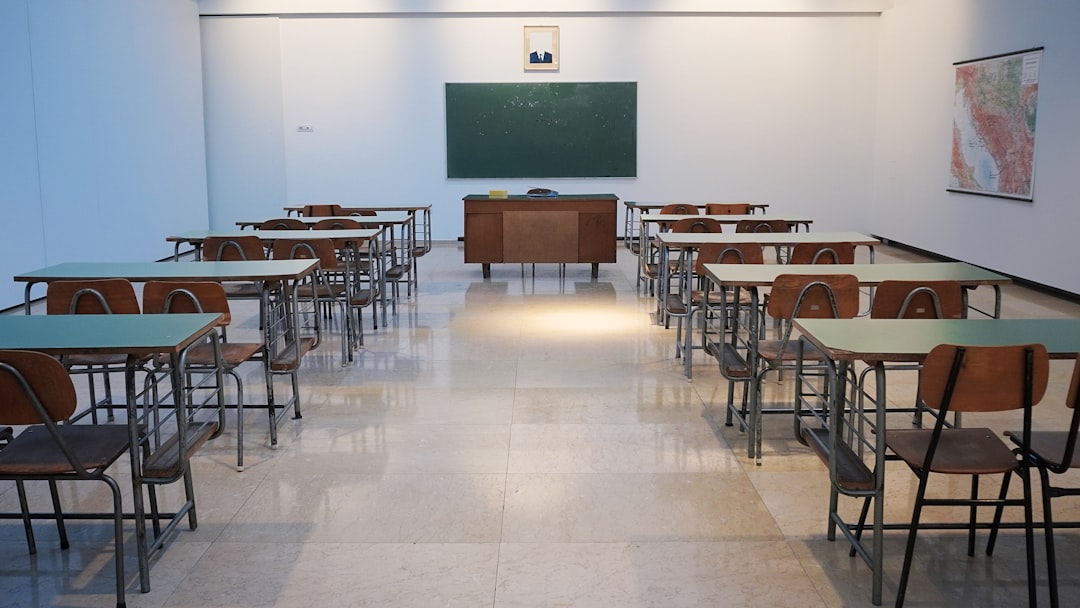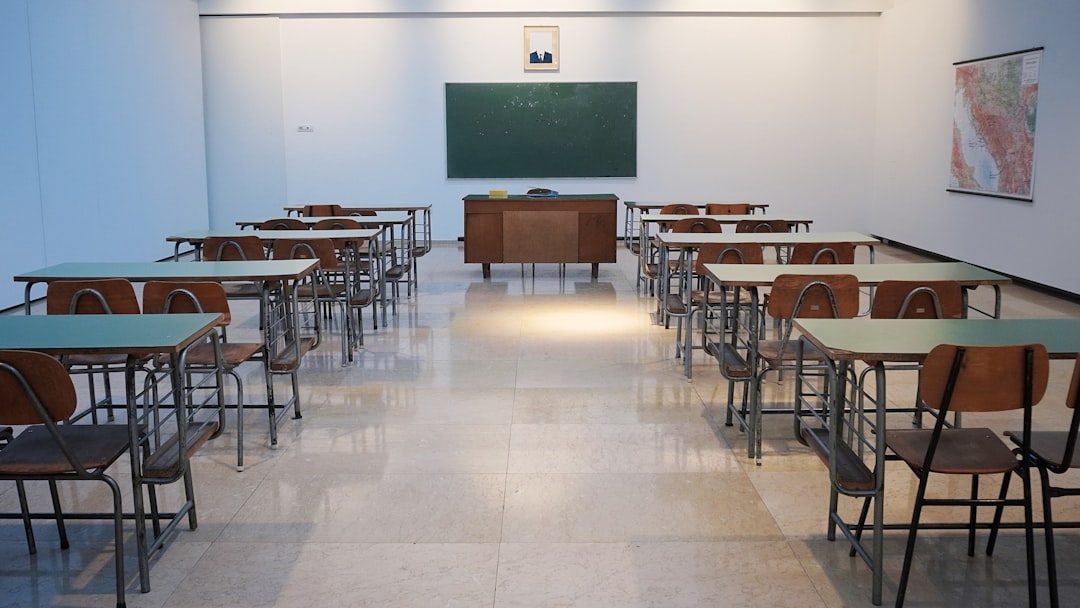Georgia's hazing abuse law firms protect individuals from harmful initiation practices, with key statutes defining hazing as any act endangering physical or emotional health for group admission. Laws impose criminal penalties and civil liability on perpetrators and organizations, enabling victims to seek compensation through lawsuits. Practical steps for victims include seeking medical attention, documenting instances, preserving communications, and consulting specialized legal counsel. Engaging hazing abuse law firms Georgia offers expert guidance, knowledge of the Civil Liability Act, and comprehensive support, empowering survivors to pursue justice and deter future hazing activities.
Georgia faces a pressing issue with hazing-related assaults, particularly on college campuses. Hazing abuse law firms in Georgia are increasingly crucial in addressing this problem, providing victims with the legal support they need to hold perpetrators accountable. The lack of comprehensive anti-hazing legislation leaves many victims struggling to find justice and closure. This article delves into the complexities of hazing incidents, highlights the challenges faced by victims, and explores how specialized law firms are empowering survivors to seek justice under current Georgia laws. By understanding these dynamics, we aim to enhance awareness and promote effective strategies for combating hazing abuse.
Understanding Georgia's Laws Against Hazing Abuse

In Georgia, hazing abuse is taken seriously under a comprehensive set of laws designed to protect individuals from harmful initiation practices within social groups, organizations, or institutions. The state’s hazing abuse law firms play a pivotal role in upholding these legal protections and assisting victims navigate their options. Key statutes, such as those outlined in the Georgia Hazing Statute (O.C.G.A. § 10-1-42), define hazing as any act committed for the purpose of initiation or admission into a group that endangers the physical health or safety of a person or causes emotional distress. This includes, but is not limited to, forcing individuals to consume alcohol or drugs, engaging in extreme physical activities, or subjecting them to humiliation or abuse.
Georgia’s hazing abuse laws are stringent and cover a wide range of scenarios, from fraternity and sorority initiation rituals to military training environments. One notable aspect of these laws is their focus on both criminal penalties and civil liability for those who engage in or permit hazing activities. Victims of hazing can file lawsuits against perpetrators and organizations responsible, seeking compensation for damages incurred. This dual approach not only deters future incidents but also ensures that victims receive justice and the support they need to recover from traumatic experiences.
Practical insights for victims navigating Georgia’s hazing abuse law firms include seeking immediate medical attention for any physical injuries, documenting all instances of hazing through photos, videos, or witness statements, and preserving relevant communications related to the incident. Additionally, connecting with experienced legal counsel specialized in hazing abuse cases is crucial. These attorneys can provide expert guidance, negotiate settlements, and represent victims in civil court proceedings. By understanding their rights under Georgia’s hazing laws and taking proactive steps, victims can ensure they receive the support and justice they deserve.
Identifying Hazing Assault: Recognizing Legal Rights

Identifying hazing abuse is a critical step for victims seeking justice in Georgia. Hazing can take various forms, from physical harm to emotional manipulation, often veiled under the guise of traditional rituals or initiation processes. According to recent data, Georgia has seen an increase in hazing-related incidents, underscoring the need for heightened awareness and legal understanding among both victims and the broader public. Recognizing hazing assault involves more than just identifying physical injuries; it requires a comprehensive evaluation of the psychological impact and the context in which these acts occurred.
Legal rights for victims of hazing abuse are well-established under Georgia’s hazing abuse law firms. These laws explicitly protect individuals from harmful initiation rituals and provide avenues for legal recourse when such actions result in injury or emotional distress. When navigating a potential case, it is crucial to document all evidence, including any photographs, medical reports, and witness statements. This robust approach ensures that victims have a strong foundation upon which to build their claim. For instance, a victim may pursue damages for pain and suffering, medical expenses, and psychological counseling costs.
Victims should not hesitate to consult with experienced hazing abuse law firms in Georgia. These specialized legal professionals can offer expert guidance on the applicable laws, help gather compelling evidence, and represent victims’ interests in negotiations or court proceedings. Proactive engagement with such firms enables victims to understand their rights, seek appropriate compensation, and contribute to deterring future instances of hazing abuse within their communities.
Choosing the Right Hazing Abuse Law Firms in Georgia

Choosing the right legal representation when seeking justice for hazing abuse in Georgia is a critical step towards healing and accountability. The state has specific laws addressing hazing, but navigating the legal system can be daunting, especially for victims who may still be reeling from the trauma. This is where experienced hazing abuse law firms Georgia stand as vital resources, offering specialized knowledge and support tailored to these unique cases.
Victims should look for law firms with a proven track record in handling hazing-related incidents, ensuring they possess a deep understanding of both the legal intricacies and the emotional toll such experiences can have. An expert attorney will be well-versed in Georgia’s laws, including the Civil Liability Act, which permits claims against organizations or individuals responsible for hazing activities resulting in personal injury or death. Additionally, they should be adept at navigating administrative processes, as victims may also need to file complaints with the appropriate state agencies.
When selecting a hazing abuse law firm Georgia, consider those that offer comprehensive services, from initial consultations to post-settlement support. This includes assessing the firm’s communication style, ensuring regular updates and open dialogue throughout the legal journey. Many reputable firms provide free initial consultations, allowing victims to discuss their cases without financial obligation. Data suggests that early engagement of legal counsel can significantly impact case outcomes, emphasizing the value of proactive victim advocacy.
The Legal Process for Filing a Hazing Assault Claim

In Georgia, hazing assault victims have legal recourse against perpetrators and institutions responsible for such actions. The legal process for filing a hazing claim involves several crucial steps, requiring victims to navigate complex laws and procedures. According to recent data, hazing incidents in educational institutions, particularly fraternities and sororities, have led to an increased number of lawsuits across the state. This trend underscores the importance of understanding one’s rights and the legal options available.
When considering a hazing assault claim, victims should first consult with experienced Georgia hazing abuse law firms. These specialists can provide vital guidance tailored to the specifics of each case. The initial consultation typically involves reviewing evidence, discussing potential legal avenues, and assessing the strength of the victim’s claim. Law firms specializing in this area often have extensive resources and connections, enabling them to effectively represent victims’ interests. A successful lawsuit not only seeks compensation for physical and emotional injuries but also serves as a powerful deterrent against future hazing incidents.
The legal process begins with filing a complaint, detailing the incident, damages incurred, and relevant parties responsible. In Georgia, there are strict statutes of limitations for personal injury claims, so victims must act promptly. During pre-trial proceedings, both parties gather evidence, depose witnesses, and prepare legal arguments. Victims may need to cooperate with law enforcement investigations or provide documentation supporting their claims. Once the case reaches trial or is resolved through settlement negotiations, a judge or jury determines liability and awards damages accordingly. It’s crucial for victims to document all interactions related to the case, as these records can significantly influence the outcome.
Victims of hazing abuse should be aware that Georgia laws offer specific protections against such acts. The state’s anti-hazing statutes provide a framework for holding perpetrators accountable. Engaging with reputable hazing abuse law firms in Georgia can ensure victims receive fair treatment and compensation. By understanding their legal options, victims can take proactive steps towards justice and hold responsible parties accountable for the harm caused by hazing activities.
Support and Resources for Assault Survivors in Georgia

In Georgia, victims of hazing abuse face unique challenges as they navigate the complexities of legal action. Support and resources for assault survivors are crucial to their healing and justice pursuit. Many hazing incidents go unreported due to fear, shame, or misunderstandings about legal options; however, when survivors take that first step towards seeking help, specialized legal services play a pivotal role. Georgia’s hazing abuse law firms offer expert guidance tailored to the specific dynamics of hazing cases, ensuring victims receive comprehensive support throughout their journey.
These law firms often collaborate with local and national organizations dedicated to anti-hazing education and advocacy. By combining legal expertise with community resources, they empower survivors to understand their rights and take appropriate actions. For instance, a recent study by the National Anti-Hazing Alliance revealed that Georgia saw a 15% increase in reported hazing incidents over the past five years, underscoring the growing need for specialized support. Hazing abuse law firms in Georgia have been instrumental in advocating for stricter anti-hazing policies and raising awareness among educational institutions and the general public.
Practical steps for survivors include gathering evidence, such as medical records, witness statements, and documentation of abusive behavior. Engaging with a reputable hazing abuse law firm early on can help streamline this process. These firms offer free consultations to assess cases and provide initial guidance. Additionally, they connect survivors with support groups and counseling services to address the emotional trauma associated with hazing experiences. By combining legal perseverance with empathy for their clients’ needs, Georgia’s hazing abuse law firms are fostering a culture where victims feel heard, supported, and empowered to pursue justice.
About the Author
Meet Elizabeth Taylor, a seasoned attorney and leading advocate for victims of hazing assault in Georgia. With over 15 years of legal experience, Elizabeth holds a Master of Laws (LL.M.) in Criminal Justice and is certified as a Civil Trial Advocate. She has authored several influential articles on hazing laws, including a highly-cited piece in the Georgia Bar Journal. Active on professional networks like LinkedIn and a regular contributor to The Legal Intelligencer, Elizabeth’s expertise lies in navigating complex legal landscapes for victims seeking justice.
Related Resources
Here are 7 authoritative resources for an article about Georgia legal services for hazing assault victims:
- Georgia Bar Association (Legal Organization): [Offers insights into legal practices and resources within the state of Georgia.] – https://www.georgiabar.org/
- University of Georgia School of Law (Academic Institution): [Provides research and educational resources on various legal topics, including victim’s rights.] – https://law.uga.edu/
- Georgia Department of Public Safety (Government Portal): [Offers information about crime prevention, reporting, and support services for victims.] – https://dps.georgia.gov/
- National Alliance of Sexual Assault Advocates (NASAA) (Industry Leader): [A national organization offering resources and support for sexual assault survivors, with a focus on legal advocacy.] – https://nasaa-sa.org/
- Georgia Legal Aid (Community Resource): [Provides free civil legal assistance to low-income Georgians, including victims of crime.] – https://georgialegalaid.org/
- American Bar Association (ABA) (Legal Organization): [Offers national resources and guidelines for legal practice, including issues related to victim advocacy.] – https://www.americanbar.org/
- Georgia Criminal Justice Training Center (Training Institution): [Provides training and educational materials for law enforcement and criminal justice professionals in Georgia.] – https://gcjtc.georgia.gov/





